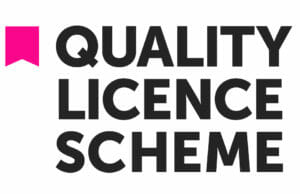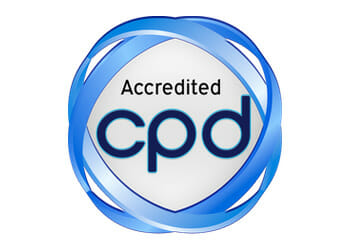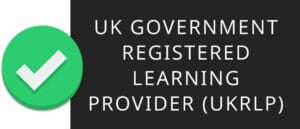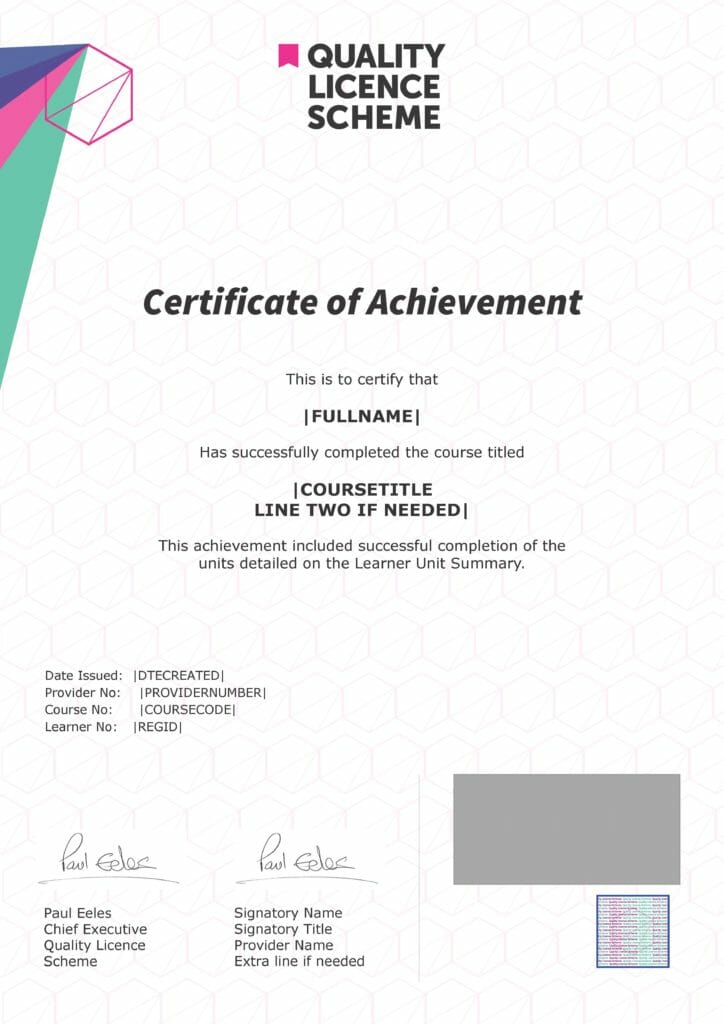Policies
Complaints procedure
CMP’s complaints procedure ensures that questions and problems you may have in connection with the college are aired quickly, and resolved fairly and consistently.
Complaints may relate to a wide range of issues, including the standards, performance, decisions or actions of one or more of our members of staff or tutors.
The procedure is designed to be accessible and transparent, although we reserve the right at our discretion to vary, replace or terminate the procedure at any stage.
It cannot be used to deal with an anonymous or social media complaint as it would be difficult to accurately determine the particular circumstances relating to such a complaint.
Please note that this procedure is to be followed by members of staff, freelancers, tutors and learners and that they must read the relevant policies relating to the areas specified below before using this procedure (follow the URLs for further details).
- Issues of harassment, victimisation or bullying: https://collegeofmediaandpublishing.co.uk/our-policies/#diversity
- Grading appeals: https://collegeofmediaandpublishing.co.uk/our-policies/#grading
- Refunds: https://collegeofmediaandpublishing.co.uk/our-policies/#refunds
- Equality and diversity: https://collegeofmediaandpublishing.co.uk/our-policies/#diversity
- Particular needs: https://collegeofmediaandpublishing.co.uk/our-policies/#particularneeds
Please reread our Learning Agreement and your Enrolment Pack, or your Tutor manual and Memorandum of Understanding (whichever applies) before you complain. They explain our responsibilities, and yours, and may help to avoid any misunderstandings.
Complaints procedure
Our complaints procedure enables you to raise and settle any complaint you may have as quickly and as near to the point of origin as possible.
Please follow the procedure as outlined in the Learning agreement clause 12.6, which is summarised below.
- Many issues will, and indeed should, be resolved informally, including complaints about your tutor’s grading, feedback or conduct, as these will be referred directly to our Head Tutor.
- If an informal approach does not result in the required resolution, you should make a formal complaint.
- If you are not satisfied with our final response, please contact our accrediting bodies.
Guidelines
Complaints should be raised as early as possible and, in any event, within three months, and the above procedure followed without unreasonable delay at any stage.
When considering a suitable resolution, the person hearing the complaint will consider whether similar complaints have been raised before, how they have been resolved, and any follow-up action that was taken.
Review of this procedure
The procedure will be reviewed annually following its implementation and may be changed from time to time and without notice.
Complaints procedure v19.01 ©
Updated February 2019
Equality and diversity policy
KEY POINTS
We, the College of Media and Publishing (CMP) regard each person as unique. We believe in their potential.
We will treat all staff members, freelancers (including tutors), partners, learners and enquirers with courtesy, dignity, and respect, and will not discriminate against them because of their:
• Age.
• Disability.
• Gender reassignment.
• Race.
• Religion or belief.
• Sex.
• Sexual orientation.
• Marriage & civil partnership.
• Pregnancy & maternity.
We only reject a learner’s enrolment if:
- In our judgment, a course is not suitable for them.
- In our judgment, they are not suited to online learning.
- They do not accept our Learning Agreement.
- They cannot afford the fee, although we try to help them if we can.
Learners with particular needs
We recognise that disabilities take many forms, both hidden and visible, and welcome the definition of disability as set out in the Equality Act 2010 (EA).
We are committed to identifying the disadvantages that disability causes and removing any consequent barriers to learning.
We are therefore committed to enabling all learners, staff members and tutors to access as fully as possible all educational and employment opportunities that we provide. We continually focus on our duty to provide inclusive learning and equality of opportunity for all.
All of our learners are expected to provide the equipment they need to undertake any of our courses. The equipment learners will need is listed on the CMP website. This includes screen readers and any other specialist equipment they may require.
We will ensure that all our learning materials comply with the EA, and we will comply with any reasonable request to provide alternative materials, or alternative assignments, for learners with particular needs, on condition that they provide valid evidence. Our Particular needs policy covers the alternative arrangements we can offer.
COMPLETE POLICY
Scope
This statement outlines the general responsibilities and requirements that we, the College of Media and Publishing (CMP), expect from staff members, freelancers (including tutors), partners and learners in their day-to-day activities.
It is the responsibility of each staff member, freelancer, tutor, and partner to ensure that this Equality and diversity policy is fully observed and that there is no discrimination against learners. Behaviour that is not in accordance with policy is unacceptable and may result in disciplinary action being taken.
Commitment
We are committed to equality and diversity for all, both as an employer and a training provider.
We expect that all those connected with us will fully comply with this policy. In accordance with the Equality Act 2010, we encompass all strands of equality and diversity legislation (age, disability, race and ethnicity, gender and sex, religion, belief and non-belief and sexual orientation).
In this policy, we demonstrate a commitment to valuing the diversity of all existing and potential staff members, tutors, freelancers and learners.
CMP is an equal opportunity employer. No staff member, freelancer, or tutor will be discriminated against on grounds of colour, race, nationality or ethnic origin, or on grounds of gender, sexual orientation, marital status, religion, political views, disability or age.
We aim to ensure that no job applicant, staff member, freelancer or tutor receives less favourable treatment or is discriminated against in any circumstances and that they are recruited, trained, transferred and promoted on the basis of the individual’s aptitudes and the requirement of the job.
Our policy is to provide and maintain equal opportunity within our working environment including access to resources and working practices for all our staff members, tutors and learners to enable them to achieve their goals and to provide such information, advice and guidance as they need for this purpose.
To ensure that all staff members and tutors, irrespective of position within CMP, understand CMP’s commitment to equality, copies of this policy are displayed on our website and Online Learning Area and summarised within our Enrolment pack and Tutor manual.
We support the concept of consultation with our staff members on equality of opportunity matters.
Our practices and guidelines relating to equal opportunities must be strictly adhered to by all staff members, freelancers and tutors. Discrimination, abuse or failure to observe these guidelines may result in disciplinary action being taken, up to and including summary dismissal (without notice) in serious cases.
If you believe that you have not been treated equally, you should raise the matter through our Complaints procedure (also see the Enrolment pack or the Tutor manual).
Positive action
- Any person who has a disability, physical or mental (hidden) will be given opportunity equal to all others and based on merit and suitability for positions and courses.
- As training providers, we are committed to being proactive in encouraging staff members, freelancers, tutors, learners and all others connected to us to embrace the diversity of individuals.
- Learners, tutors and staff members will be supported to make sure they understand their duty to cooperate and comply with any measures set out to improve or sustain equality and diversity within CMP.
- Learners, staff members, freelancers, tutors and others are asked to report any incident in order that it may be addressed. These will be investigated thoroughly on the basis of natural justice, ie, that someone is innocent until proven guilty. Any allegation is no more than an allegation until it is proven.
- All staff members and tutors are asked to carry out their duties in a professional and proper manner considering the requirements of legislation and commitment to compliance.
Breach of policy
Disciplinary action will be taken against any staff member, freelancer, tutor or learner who is found to have committed a proven act of discrimination or harassment. Serious breaches of policy will be taken as gross misconduct.
Harassment, bullying, victimisation
Harassment is unsolicited and unwelcome workplace behaviour that adversely affects the dignity of the recipient. Where such behaviour is motivated by gender, sexual orientation, marital status, race, colour, national or ethnic origin, nationality, age or disability it also amounts to infringement of equal employment opportunity.
Bullying is persistent, offensive, malicious, intimidating or humiliating behaviour, often associated with the misuse of power or position, which aims to undermine the confidence or self-esteem of the recipient.
Victimisation as a result of giving information about any act by any person that contravenes this Equality and diversity policy, or for any other reason will not be tolerated. No person, staff member, freelancer, tutor, or learner will be victimised for their religion, religious or philosophical beliefs, or sexual orientation.
We are committed to ensuring that no harassment or victimisation at work, whatever the motivation, is overlooked or condoned. Such behaviour can range from extreme forms such as violence or bullying to less obvious actions like practical jokes and ridiculing colleagues or subordinates.
Conduct becomes harassment if it persists after the recipient has made clear that it is regarded as offensive, although a single offensive act can amount to harassment if it is so serious as to be obviously offensive towards the recipient.
If you believe you are the subject of any of these, you should make a formal complaint. (The aim throughout is to resolve the complaints sensitively, impartially, effectively and quickly.) Depending on the seriousness of the allegation, the alleged harasser (whether a staff member, freelancer, tutor or learner) may be suspended from work or learning while the matter is being investigated under our disciplinary procedures.
All staff members and tutors must discourage sexual or racial harassment and seek to prevent it from taking place. In particular, they should:
- Take prompt action to stop any form of harassment as soon as it is identified.
- Ensure that potentially offensive material is not displayed or circulated in the offices, website, Online Learning Area, social media or via email.
- Make it clear that this kind of behaviour is not acceptable and where appropriate will be treated as a disciplinary matter.
Confidentiality
Any information disclosed that is considered personal or sensitive, including disability, will be on the understanding that it is done so in confidence and will only be shared with relevant personnel by prior written agreement and not shared without explicit consent being given by the individual.
Where written permission is given by individuals to pass on information, the whole organisation shall be considered to know. It will be the responsibility of the informed person to pass information to the appropriate individuals and make all appropriate arrangements to facilitate the needs of the staff member, tutor, or learner without cause to embarrassment or disadvantage.
We will conduct thorough induction for staff members and tutors to ensure they understand the importance of maintaining confidentiality and how to maintain it.
Complaints
In order to protect staff and learners alike, we will ensure that each person has redress against harassment and bullying at work or during any part of learning.
We will ensure that any staff member, tutor or learner who feels that he or she has been treated unfairly or subjected to direct or indirect unfair discrimination can raise the matter through our Complaints procedure (also see the Enrolment pack or the Tutor manual) when every effort will be made to secure a satisfactory resolution. Any staff member, freelancer, tutor, or learner making a complaint of unfair discrimination will be protected from victimisation in any form. However, the rules of natural justice will apply at every stage.
- Learners must use the guidelines and procedures issued to them as part of their induction, in particular, the Learning agreement and the Enrolment pack.
- A record of all complaints made by learners will be held in confidence on their learner file.
- Staff members, freelancers and tutors must use the line management structure that is in place.
- A record of all complaints made by staff members, freelancers and tutors will be held by the Operations Director in accordance with procedures and in compliance of all legislation.
- The reasons for all proven complaints will be reviewed, and action will be taken where appropriate in an endeavour to prevent a reoccurrence.
Right to advice, counselling & mediation
We support everyone’s right to advice and to legal protection. We aim to address complaints internally through our own policies and procedures. If this is not possible, we will endeavour to source independent advice, counselling or mediation for the individual to pursue, if they so wish.
Monitoring
Regular monitoring of our recruitment together with all other equality and diversity policies and processes for staff members, freelancers, tutors, and learners will take place to ensure that we pursue an effective policy of equality of opportunity.
Information computer technology
We will not require anyone to put down any detail on their application about which they are uncomfortable.
Anyone whose personal data is stored by us will have the right of access to it. We are fully in agreement with and support the regulations in the UK GDPR. See our Privacy and data protection policy.
Recruitment and selection
Recruitment will be on the sole basis of the applicant’s abilities. Applicants are “invisible” to us, in that we will not know their race, background, sexual orientation or other circumstances unless they tell us. A disability (physical or mental) will not of itself justify the non-recruitment of an applicant. We will take into account previous qualifications, achievements and experience for the purposes of recruitment and accreditation of prior learning for all staff members, freelancers and tutors.
Reasonable adjustments to the application procedures will be made as required to ensure that applicants are not disadvantaged because of disability. For example, where written documentation is used, alternative arrangements will be made for visually impaired applicants.
Before an applicant is judged because of a reason related to their disability to have failed to meet the requirements of their job description and personal specification or to have been less suitable than other applicants, full consideration will be given as to whether a reasonable adjustment can be made which will counteract this disadvantage.
Consequently, in addition to following CMP’s initial selection procedure the following general guidelines will be followed to ensure equal opportunities for all. CMP will:
- Make it clear that applications both for jobs and government-funded training programmes are welcome from all people.
- Choose photos or illustrations for recruitment literature that reflect the diversity of our society.
- Eliminate the use of racist or sexist language.
- Not prejudge people’s abilities because of their race, sex or disability.
- Plan interviews carefully to ensure any questions asked relate directly to the position applied for in order to make decisions based on knowledge, abilities, experience and merit.
- Wherever possible ask the same questions, in the same words, of everyone being interviewed.
- Keep full and accurate records of interviews and reasons for selection or non-selection.
- Be aware of the dangers of stereotyping on the grounds of age, disability, sex, sexual orientation, race, religion or belief, marriage or civil partnership, pregnancy or maternity when considering individual abilities.
Induction
When a disabled staff member, freelancer, tutor or learner commences their employment or programme it will be the responsibility of the managers, directors and staff members in consultation with the disabled person to ensure that such reasonable adjustments are made as are required to enable him or her to work or study safely and effectively and to secure equal access to the benefits of employment or their programme.
Where managers or staff members do not have the relevant expertise to resolve a problem they will consult with the directors and, where required, an outside specialist may be consulted.
Learners are made aware, in the Enrolment pack, that this policy relates also to their own behaviour towards others, and that they must not harass, abuse or intimidate fellow learners, tutors or staff members on account of their age, disability, sex, sexual orientation, race, religion or belief, marriage or civil partnership, pregnancy or maternity.
Should a learner approach a tutor regarding a complaint, the tutor should ask the learner to contact the college via the OLA.
Tutors and freelancers must make their own arrangements if they have a disability that affects their work.
Training and career development
We will train, develop and promote on the basis of merit and ability and encourage staff members and staff applicants from all backgrounds. In particular, each element of the promotion procedure and all necessary training will be made accessible to staff members by such adjustments as are reasonable.
Where during the course of their employment or programme a disabled staff member recognises their need for a reasonable adjustment to be made to employment or training arrangements or premises, he or she should discuss this requirement with his or her manager. The manager, in consultation with the directors, will then determine the appropriate action.
Every effort will be made to try to provide internal organisational support. Where it is identified and agreed that additional support is needed for a staff member, we will make every effort to try to provide internal organisational support. In cases where this cannot be achieved, access to other agencies or organisations will be sought so that a continuous pathway of help and advice is identified for that individual.
Where it is identified and agreed that this ability or skill is in need of refreshment at a later time, re-assessment can take place and, if necessary, support organised.
Rehabilitation of offenders
We will not discriminate against anyone who has a spent conviction under the Rehabilitation of Offenders Act 1974.
Benefits
Disabled staff members will have equal access to all benefits and facilities and reasonable adjustments will be made where necessary. The responsibility for implementation of the policy will lie with the managers in consultation with the directors.
Retention
As part of our commitment to equal opportunities for disabled people, we will ensure that all reasonable measures are taken to retain disabled staff members or learners in their employment or programme.
It will be the responsibility of the directors to identify when there is an issue of retention for an individual staff member or learner, for example where the dismissal of a disabled person is being considered on the grounds of sickness or incapacity.
We will make such adjustments as are reasonable to enable a disabled staff member or learner to carry out his or her duties or study programme. This will include but is not limited to consideration of the provision of specialist equipment, job re-design, re-training, flexible hours, remote working or redeployment for staff members, or the provision of alternative course material for learners.
If, as a result of their disability, a staff member is absent from work for a period of four weeks, a phased return to work should be arranged in consultation with the directors.
During this period a staff member may request vocational, medical or functional assessment.
If redeployment is necessary, the staff member will be viewed as a priority within the redeployment procedure.
Adjustment
The prime responsibility for arranging the appropriate adjustment will lie with the directors. However, in many cases, a team approach by the managers and directors will be appropriate.
The person with responsibility for arranging adjustments will at all times consult with the staff member concerned whose agreement will be sought. The expertise of the disabled staff member concerning their own disability will be recognised.
Where the person with initial responsibility does not have the relevant expertise to resolve the problem, they will consult with the directors. Where required, an outside specialist may be consulted with prior authorisation from the directors.
Once an adjustment has been made, this operation may need to be reviewed at agreed intervals to assess its continuing effectiveness.
Action plan – removal of barriers
We recognise the importance of taking proactive measures to remove barriers to disabled people from the working environment.
An action plan will be drawn up in consultation with the staff member, indicating which actions will be taken over a certain period of time and who has responsibility for various aspects of the plan and how it will be monitored.
The plan will address physical access to the premises, access to benefits of employment, terms and conditions of employment, recruitment and arrangements for recruitment, performance assessment, promotion and retention.
It is important that you let us know if you have any particular day-to-day care or medical needs so that we can try to make suitable arrangements for you. You can tell your line manager confidentially in person or by writing what you need.
We treat all medical disclosures including the carrying of prescribed drugs confidentially and will only share this information with other medical or paramedical personnel if necessary and with your signed agreement. We will ask for details of someone we can contact on your behalf in the event of you being taken ill. If we know your previous medical condition the right treatment can be given to you as soon as possible.
Equal pay
Men and women are legally entitled to be paid equally without any bias on the grounds of gender. All reasonable steps will be taken to ensure that male and female staff members receive equal pay for the same work and for work rated as equivalent and for work of equal value.
Age
Discrimination or harassment (whether direct or indirect) on grounds of age, by employers, is prohibited in the areas of recruitment, promotion and training.
Disability
We are committed to equal opportunities for staff members, freelancers, tutors or learners regardless of whether or not they have a disability. Any individual who believes that he or she has been unfairly discriminated against for reasons related to their disability can use our Complaints procedure (also see the Enrolment pack or Tutor manual).
Race & ethnicity
We are committed to racial equality for all learners and staff members. We aim to ensure that the environment is supportive, where all individuals are treated with courtesy and respect and their contribution to the learning process is valued. We aim to create and maintain the conditions whereby learners, staff members, freelancers and tutors are treated solely on the basis of their merits, abilities and potential, regardless of ethnic or national origin.
Gender & sex
We will give due weight to the need to promote gender equality. The duty requires us to identify and tackle discrimination, to prevent harassment, and to ensure that we promote equality of opportunity between men and women.
The duty requires us to take action on the most important gender equality issues within our functions. Under the duty, we also have an obligation to eliminate discrimination and harassment towards current and potential transgender staff members, freelancers, tutors, and learners.
We will:
- Ensure that all of a transgender staff member or tutor’s rights are met, as are every employee’s rights, under the Sex Discrimination Act 1975.
- Ensure that transgender staff members and tutors have equal access to all forms of training and staff development.
- Ensure that there is no discrimination on the grounds of gender identity in relation to the dismissal of staff members. In particular, should a redundancy situation occur, we will ensure that gender identity or gender reassignment are not factors in the selection of those to be made
External support:
The Gender Trust is recognised as an authoritative centre for professional people who encounter gender-identity-related issues in the course of their work. This group includes employers, human resources officers, health workers and information services.
Website: http://www.gendertrust.org.uk
Sexual harassment at work
Sexual harassment is a particular form of harassment. It is conduct at work directed towards employees by other employees or a group of employees which is of a sexual nature, or which is based on a person’s sex, and which is regarded as unwelcome or offensive to the recipient.
The following examples illustrate the sort of conduct that may be treated as sexual harassment:
- Unwanted physical contact or conduct which is intimidating or physically or verbally abusive. Harassment can also be non-verbal, for example, staring or gestures.
- Suggestions that sexual favours may further a person’s career or that refusal may hinder it.
- Sexual advances, propositions, suggestions or pressure for sexual activity at or outside work.
- Derogatory or demeaning remarks based on gender, or the display of sexually explicit material in the workplace.
Sexual harassment is a denial of equal employment opportunity and has the effect of insulting and demeaning the employee who is harassed.
Sexual orientation
It is our aim to create an inclusive community where people are enabled to meet their full potential and are treated as individuals. This includes recognising and supporting a person’s self-identity.
This is an important aspect of our overall commitment to providing equal opportunities in employment and to ensure that no current or prospective staff members or tutors are subject to discrimination or victimisation as a result of their sexual orientation.
Religion, belief & non-belief
Through the implementation of the relevant policies and procedures, we seek to ensure that:
- Recruitment and selection are based entirely on relevant criteria, which do not include religious belief or non-belief (except in the case of a genuine occupational requirement).
- Members of any religion, or none, are treated with equal dignity and fairness.
- Under-represented groups in society are encouraged to apply for jobs.
- Where possible, appropriate services are provided to meet the cultural and religious needs of all staff members.
The right to freedom of thought, conscience and religion is absolute, but the right to manifest beliefs is qualified by the need to protect the rights and freedoms of others, bearing in mind each individual’s right to freedom of expression.
Complaints procedure
CMP’s Complaints procedure is to be used by staff members, tutors, freelancers and learners for all types of complaint.
Contact information
The nominated person to contact for equality and diversity, and the contents of this policy, is the Operations Director:
Equality and diversity policy v19.05 ©
Updated 25 March 2022
Grading appeals procedure
You are entitled to challenge your tutor’s grade for any assignment.
This is the process:
1. If you feel that your grade is inappropriate, message your tutor in the first instance, using the CONTACT MY TUTOR box in the OLA, and discuss it with them.
2. If you are dissatisfied with your tutor’s response, please message us, using the CONTACT THE COLLEGE box in the OLA. Please tell us:
- a. Your name.
- b. Your course.
- c. The assignment number.
- d. Why you believe your grade was wrong.
3. We will acknowledge your message within two working days, and the head tutor will investigate, as follows. He will:
- a. Examine your assignment and your tutor’s comments with a view to confirming your tutor’s grade, or changing it. He may change it to a higher or a lower grade.
- b. Inform you, and your tutor, of your new grade within three working days.
4. If you are dissatisfied with the head tutor’s decision, please message us, using the CONTACT THE COLLEGE box in the OLA and tell us why you think the decision is wrong.
5. We will then ask another tutor, who has no prior knowledge of any previous grades, to mark your assignment.
Grading appeals procedure v18.00 ©
Updated January 2019
Particular needs policy
INTRODUCTION
This policy outlines:
- Our arrangements for making reasonable adjustments and special considerations in relation to online study to achieve our qualifications.
- How learners qualify for reasonable adjustments and special considerations.
- The reasonable adjustments we will permit and those where permission is required in advance before they are applied.
Review arrangements
We review the policy annually as part of our overall policy review process and revise it as and when necessary, in response to tutor and learner feedback, changes in our practices, actions from the regulatory authorities or external agencies or changes in legislation.
Policy overview
We are committed to complying with all current and relevant legislation in relation to the development and delivery of our qualifications and, which, at the time of writing, includes but is not limited to the Equality Act 2010. We seek to uphold human rights relating to race relations, disability discrimination and special educational needs of our learners and to provide equal reasonable adjustments and special considerations for all learners registered on our courses.
We ensure that our qualifications and assessments do not bar learners from taking our qualifications. We recognise that reasonable adjustments or special considerations may be required at the time of assessment where:
- Learners have a permanent disability or particular learning needs.
- Learners have a temporary disability, medical condition or learning needs.
Definition of reasonable adjustments
A reasonable adjustment is any action that helps to reduce the effect of a disability or difficulty that places the learner at a substantial disadvantage in the assessment situation. Adjustments are made to an assessment for a qualification to enable a disabled learner to demonstrate his or her knowledge, skills and understanding of the levels of attainment required by the specification for that qualification. Reasonable adjustments must not affect the integrity of what needs to be assessed, but may involve:
- Changing usual assignment requirements.
- Adapting learning and assignment materials.
- Providing documents that are compatible with screen-readers, and scripts for videos and podcasts.
Reasonable adjustments must be approved and set in place before the assessment activity takes place. The use of a reasonable adjustment will not be taken into consideration during the assessment of a learner’s work. We are only required by law to do what is “reasonable” in terms of giving access. What is reasonable will depend on the individual circumstances, cost implications and the practicality and effectiveness of the adjustment.
Definition of special considerations
Special considerations can be applied after an assessment if there is a reason the learner may have been disadvantaged during the assessment.
We recognise that the occasions when these are needed will be rare. Learners complete assignments when and where they are ready, and if they experience difficulties such as illness, disturbance, etc, they can usually complete the assignment at another time.
Special considerations should not give the learner an unfair advantage; neither should their use cause a third party to consider the certificate to be misleading regarding a learner’s achievements.
Process for requesting reasonable adjustments or special considerations
To request a reasonable adjustment or special consideration, the learner must email [email protected], or message the college via the Online Learning Area.
For reasonable adjustment requests, appropriate supporting evidence must also be supplied with the request forms in order for the request to be considered. Supporting evidence may include a:
- Medical certificate.
- Psychological or other professional assessment report.
How we will deal with requests
In the first instance, we will respond to acknowledge the request within two working days of receipt. We will respond to confirm the outcome of the request within five working days of receipt.
MAKING REASONABLE ADJUSTMENTS
Principles of making reasonable adjustments
These principles should be followed when making decisions about a learner’s need for reasonable adjustments to assessments:
- It should not invalidate the assessment requirements of the qualification.
- It should not give the learner in question an unfair advantage.
- It should reflect the learner’s normal way of working.
- It should be based on the individual need of the learner.
- Reasonable adjustments should not compensate the learner for lack of knowledge and skills. The learner must be able to cope with the content of the assessment and be able to work at the level required for the assessment.
- A reasonable adjustment must not invalidate the assessment requirements of the qualification or the requirements of the assessment strategy. While we will take all reasonable steps to ensure that a learner with a disability or difficulty is not placed at a substantial disadvantage in comparison with persons who are not disabled in terms of access to assessment, there is no duty to make any adjustment to a provision, criterion or practice. All learners’ performance must be assessed against set standards. These standards cannot be altered, but it may be possible to change the course delivery so that each learner has an equal opportunity to demonstrate what they know, understand and can do.
- A reasonable adjustment must not give the learner an unfair advantage or disadvantage over other learners. The qualification of a learner who was awarded a reasonable adjustment must have the same credibility as that of any other learner. As vocational qualifications may lead to employment, achievement of such qualifications must give a realistic indication to the potential employer of what the holder of the certificate can do.
- A reasonable adjustment must be based on the individual need of the learner. Decisions about adjustments to assessment should be taken after careful consideration of the assessment needs of each individual learner, the assessment requirements of the qualification or unit and the nature and extent of the support given as part of normal teaching practice. Different qualifications and different methods of assessment can make different demands on the learner. The learner should be consulted throughout the process.
- A reasonable adjustment should reflect the learner’s normal way of working providing this does not affect what is being assessed in any way. The learner should have experience of and practice in the use of the adjustment.
- A reasonable adjustment must be supported by evidence which is sufficient, valid and reliable. Where the implications of a particular difficulty are unclear, we will use specialist advice in order to determine how the difficulty will affect the learner’s performance in the assessment.
- We will avoid making assumptions on the basis of previous experience about whether adjustments may be necessary. Judgments should be made on the basis of individual need. If an adjustment is needed, it should be documented for audit purposes.
Identifying and obtaining supporting evidence
Any application for a reasonable adjustment must be supported by appropriate evidence which is valid, sufficient and reliable.
To ensure that any adjustment to assessment will only provide the learner with the necessary assistance without giving him or her an unfair advantage over others, we must be clear about the extent to which the learner is affected by the disability or difficulty.
A learner with a Statement of Special Educational Need does not automatically qualify for reasonable adjustments. The demands of the qualification or Lesson should be taken into account.
Particular needs policy v18.02 ©
Updated 17 August 2021
Refunds policy
If you enrolled on or after 3 September 2019, you are protected by the Consumer Rights Act 2015 and may request a full refund of your course fee within 14 days of receipt of your enrolment by emailing [email protected]
See further details: https://collegeofmediaandpublishing.co.uk/money-back-guarantee/
We do not issue refunds in any other circumstances.
This does not affect your statutory rights.
Refunds policy v18.01 ©
Updated September 2019
Plagiarism policy
We have a zero-tolerance policy on plagiarism.
The Learning Agreement* that you accept when you enrol has clear rules about plagiarism. It says you have a responsibility to:
Submit work which is your own original work, clearly presented and a true reflection of your knowledge and abilities. Learners who commit plagiarism by submitting work that is not theirs will be removed from their course(s) immediately, without refund of fees.
We regularly use checking software and tutors’ experience to identify cheating.
*This is called Student Learning Agreement on your enrolment form.








































